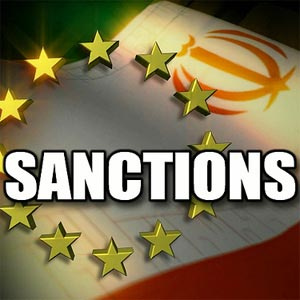US Misses the Mark
By Dr. Mansour Moazzami, former deputy minister of petroleum and Iran’s former ambassador to Brazil on gasoline embargo against Iran

While Iran has a daily import of 20-22 million liters of gasoline, the real domestic consumption, particularly that of personal cars, is much less. An average motorist uses 60-70% of the monthly 100 liter ration and the rest is saved in her fuel card, to be used next month. Thus, of the daily 22 million liter import, 15-16 million liters are sufficient to meet the needs.
We will face problems if we fail to supply this volume of gasoline. However, solutions to mitigate the consequences of a likely gasoline sanction have already been contrived. First is economy in consumption. Iran can also use the capacity of domestic refineries and petrochemical facilities to convert refinery feed into gasoline. This will supply 10-14 million liters of the domestic demand. Thus, it is possible to answer the domestic need in case of gasoline sanction.
Of course these are solutions for a worst case scenario. Gasoline embargo is a failed plan when trade has its own tricky ways. Iran’s situation today is not worse than the years of war with Iraq and supplying gasoline is not more difficult than supplying arms. Iran could buy the weapons it needed at that time. Gasoline sanction is irrational, unfeasible and unable to subject Iran if that’s the intention of its proposers.
United States, self-proclaimed champion of human rights, should know that despite its claims, the gasoline sanction primarily afflicts Iranian citizens and falls at odds with Americans’ mottos. The more pressures on Iran by the United States and West, the stronger the solidarity among Iranian citizens will become. That should have been already learnt with the post-revolution experience. Moreover, West has gained nothing by placing embargos against Iran. Had they stopped talking of gasoline sanctions, Iran would have never upgraded its petrochemical industry. Any measures out of international norms will bring Iranians closer and the United States will be the only party suffering.
So far, West has tried to take a united stance against Iran via the Five plus One platform. United States decision to impose unilateral gasoline sanctions on Iran is at odds with the policy of collective decision-making. A unilateral measure will make European countries cynical about their partnership with the United States. If we look at it from another point of view, we can even say that the sanction encourages Europeans and other U.S. allies to expand their political and economic ties with Iran via a different channel, one that is not under Americans’ control.
We will face problems if we fail to supply this volume of gasoline. However, solutions to mitigate the consequences of a likely gasoline sanction have already been contrived. First is economy in consumption. Iran can also use the capacity of domestic refineries and petrochemical facilities to convert refinery feed into gasoline. This will supply 10-14 million liters of the domestic demand. Thus, it is possible to answer the domestic need in case of gasoline sanction.
Of course these are solutions for a worst case scenario. Gasoline embargo is a failed plan when trade has its own tricky ways. Iran’s situation today is not worse than the years of war with Iraq and supplying gasoline is not more difficult than supplying arms. Iran could buy the weapons it needed at that time. Gasoline sanction is irrational, unfeasible and unable to subject Iran if that’s the intention of its proposers.
United States, self-proclaimed champion of human rights, should know that despite its claims, the gasoline sanction primarily afflicts Iranian citizens and falls at odds with Americans’ mottos. The more pressures on Iran by the United States and West, the stronger the solidarity among Iranian citizens will become. That should have been already learnt with the post-revolution experience. Moreover, West has gained nothing by placing embargos against Iran. Had they stopped talking of gasoline sanctions, Iran would have never upgraded its petrochemical industry. Any measures out of international norms will bring Iranians closer and the United States will be the only party suffering.
So far, West has tried to take a united stance against Iran via the Five plus One platform. United States decision to impose unilateral gasoline sanctions on Iran is at odds with the policy of collective decision-making. A unilateral measure will make European countries cynical about their partnership with the United States. If we look at it from another point of view, we can even say that the sanction encourages Europeans and other U.S. allies to expand their political and economic ties with Iran via a different channel, one that is not under Americans’ control.

